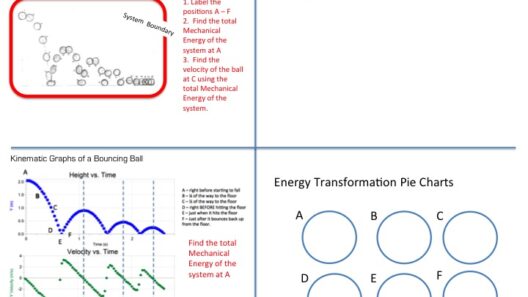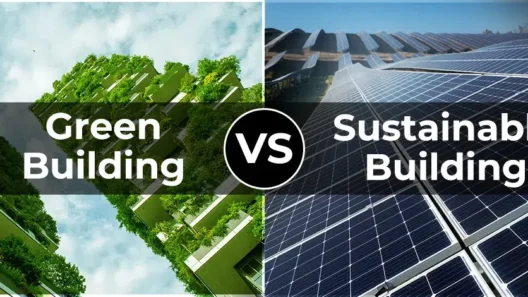In today’s fast-paced society, introverts often find themselves navigating a world that requires social engagement and energy expenditure, which can lead to overwhelming fatigue known as introvert burnout. The nuanced condition can hinder not just personal well-being but also affect one’s capacity to champion environmental consciousness. Conscious energy conservation as an introvert is not only feasible, but it can also serve as a means to recharge while simultaneously contributing to ecological sustainability. This piece elucidates various strategies on how to conserve energy effectively, thus ensuring that introverts can replenish their mental reserves without succumbing to burnout.
Understanding Introvert Burnout
Introvert burnout manifests as emotional exhaustion resulting from excessive social interactions and prolonged external stimulation. Symptoms may include irritability, apathy, physical fatigue, and heightened sensitivity to sensory inputs. It’s imperative for introverts to recognize their limits and implement strategies for safeguarding their energy. Recognizing that mental energy is finite allows for a proactive approach to both self-care and conscientious living. In managing personal energy, introverts can also enforce eco-friendly practices, further intertwining personal well-being with broader environmental goals.
Strategic Energy Conservation
Strategies for conserving personal energy can also lead to reduced ecological footprints. By intentionally choosing when and how to engage, introverts can balance their social commitments with opportunities to retreat and rejuvenate.
1. Cultivate a Sanctuary at Home
Your living space plays a crucial role in energy conservation. Creating a tranquil environment not only fosters a sense of peace but also minimizes the need for external stimulation. Utilize soft, ambient lighting and soothing colors to promote relaxation. Opt for energy-efficient appliances that reduce consumption and enhance comfort levels. Consider arranging spaces to invite natural light—this promotes positivity while conserving energy resources. The essence of a sanctuary is amplified by integrating plants, which further purify air quality and enhance emotional well-being.
2. Embrace Minimalism
A minimalist lifestyle reduces both physical clutter and the overwhelming sensory inputs that can cause fatigue. By curating your possessions intentionally and eliminating distractions, you create a serene space for contemplation and reflection. Minimalism extends beyond physical items to routines; simplifying your schedule permits more time for restorative activities, ensuring that social interactions are purposeful rather than obligatory. In parallel, a minimalist approach perpetuates sustainable living as it naturally reduces consumption and waste generation.
3. Schedule Downtime
Introverts thrive on solitude to recharge. Integrating scheduled downtime into daily activities is vital. Designate specific hours as ‘quiet time’ for meditation, reading, or simply unwinding in silence. Use this period to engage in energy-conscious hobbies that invigorate the mind without depleting mental reserves—consider activities such as writing, drawing, or learning a new language. Such engagements are not only restorative but they also allow for creative expression while minimizing energy spend. Moreover, partaking in solitary outdoor pursuits, such as hiking or gardening, encourages connection with nature and reinforces ecological awareness.
4. Engage in Social Interactions Wisely
Being discerning about social engagements is paramount for energy conservation. Opt for smaller gatherings where meaningful dialogue can flourish, bypassing the overstimulation often experienced in larger settings. Communicate your needs to friends and family; they will likely be understanding of your desire for concise interactions. Alternative modes of communication, such as texting or video calls, can maintain connections without the full immersion of in-person encounters. Through intentional social engagement, introverts reduce the risk of burnout while maintaining their social fabric.
5. Practice Mindful Consumption
Mindful consumption extends beyond energy usage at home to encompass all aspects of daily living. Be conscious of the resources expended through effective meal planning, opting for locally sourced foods, and minimizing waste. Embrace plant-based meals that are not only healthy for your body but also carry a lighter ecological footprint. Engaging in mindful shopping—choosing quality over quantity—reinforces sustainability. When an item is necessary, prioritize eco-friendly brands that reflect an ethical perspective on production and consumption, thereby reinforcing a commitment to conservation.
6. Utilize Nature as a Recharge Tool
The great outdoors serves as a remarkable medium for recharging mental and emotional energy. Engaging with nature can rejuvenate an overstimulated mind; this could involve leisurely strolls through parks or quiet afternoons spent by a body of water. Nature is known to provide a soothing backdrop that aids in recovery from mental fatigue. Utilizing eco-friendly practices during outdoor activities, such as hiking with biodegradable products, enhances the experience while nurturing the environment.
7. Foster Connections Through Creativity
Creative outlets facilitate personal expression and can help maintain social connections in a controlled manner. Engage in activities like crafting, painting, or writing, which can be done solo or in small groups. These endeavors encourage collaboration and sharing, but on a smaller, manageable scale. Forming small creative circles with mutual interests can serve as a refuge from overwhelming social obligations while simultaneously promoting mindfulness around energy use and sustainability.
Conclusion
Conserving energy as an introvert does not merely pertain to the personal realm; it intersects significantly with environmental stewardship. Individuals are encouraged to establish practices that allow for rejuvenation without overwhelming mental fatigue. By creating sacred spaces, practicing minimalism, scheduling downtime, engaging wisely in social interactions, consuming mindfully, utilizing nature for restoration, and fostering creativity, introverts can cultivate an existence rich in tranquility while simultaneously contributing to a healthier environment. These practices create a harmonious balance, ensuring that personal energy reserves are safeguarded while promoting ecological sustainability.






